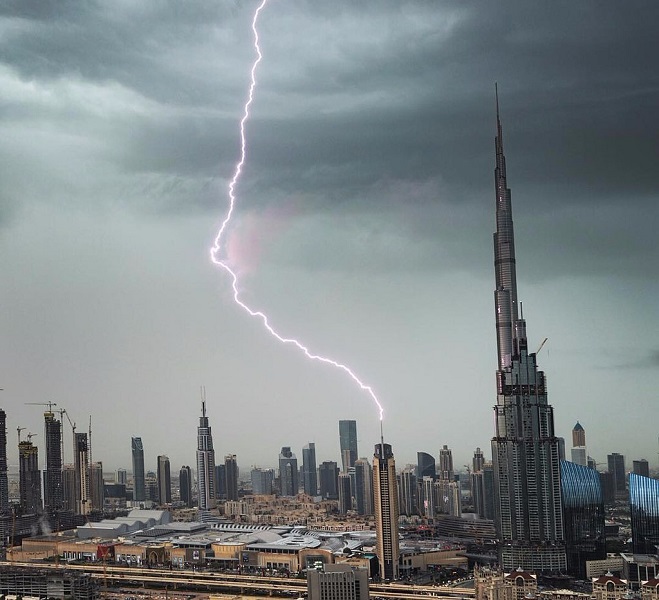Scattered showers expected on Sunday across UAE
By Aliheydar_Rzayev Sunday, 19 November 2017 3:08 AM

The National -- Rain that fell in Fujairah, Ras Al Khaimah and Sharjah over the weekend can be partly attributed to nature, partly to nurture, according to the National Center of Meteorology and Seismology.
As clouds began amassing over the eastern and northern areas of the UAE on Friday, the centre dispatched an aircraft to blast moisture-enhancing flares into the clouds. In all, 38 flares were fired into the atmosphere.
By the end of the day, 18.6 mm of precipitation fell over Fujairah, 6.2 mm dropped over the Jabal Jais mountain and a lesser amount sprinkled over Umm Al Quwain, Hatta and other areas. Heavy rain drenched Fujairah’s Friday Market in Al Ghail and the Al Jazirah Al Hamra in Ras Al Khaimah, according to the NCMS.
“It was due to cloud seeding,” a meteorologist said of the weekend showers. “[We could say] it was due to cloud seeding, because the aircraft was there and made some seeding for some clouds.”
On Saturday, the airplane was enlisted again and by mid-afternoon, it had fired six flares, with more missions planned for later in the day.
Although difficult to measure, experts at the centre say that its cloud-seeding programme can help boost rainfall in moisture-rich clouds by between 10 and 35 per cent. But in order for the technology to be effective, the rain clouds have to first naturally form.
The opportunity for rain enhancement will continue this week, as the NCMS predicts light, scattered showers on Sunday over the country’s west coast and islands.
“We expect slight to moderate rain, especially during morning time,” the NCMS said. “Then, we wait for 24 hours for another system coming from west to east.”
The new weather system is forecast to arrive over the UAE, with much-needed rain clouds, Tuesday or Wednesday.
“It is not sure, but the maps show that during November 22, we will be affected by this system, our northern and eastern areas, the islands also,” according to the NCMS.
The rainfall is normal for this time of year, the meteorologist said.
“This is the season of rain,” he said, noting it will continue all through the winter months.
On Saturday, the Jabal Jais mountain recorded the lowest daily temperature in the UAE when the mercury dropped to 10.3 C. Al Shawamekh, southeast of Abu Dhabi, experienced the highest temperature in the UAE, with a peak of 32.5 C.




























Add new comment